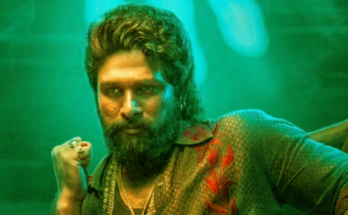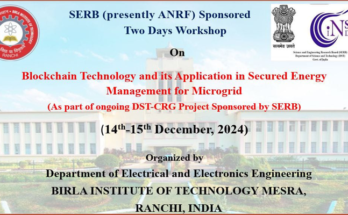 ‘Kharna’— a special ritual of Chhath puja, observed with great devotion across Dhanbad and Bokaro on Wednesday just after the Sun goes down in the evening. On the second day of Chhath, ‘Kharna’ performed in the evening and the worshiper took their only meal from the offerings (Prashad) made to the Sun God in this ritual.
‘Kharna’— a special ritual of Chhath puja, observed with great devotion across Dhanbad and Bokaro on Wednesday just after the Sun goes down in the evening. On the second day of Chhath, ‘Kharna’ performed in the evening and the worshiper took their only meal from the offerings (Prashad) made to the Sun God in this ritual.
Pandit Mukesh Pandey the cleric of Ram Mandir Sector 1 at Bokaro Steel City said that, on the second day of Chhath, Kharna is performed; friends and family are invited to share the ‘prashad’ of the ritual. From this day onwards, the worshiper goes on a fast without water for the next 36 hours”.
‘Chhath’ is dedicated to the lord ‘Sun’, started with the rituals of Naha-Kha (Bathe and Eat) on Tuesday will last for four days.
Elaborating the process of Chhat Puja he said, “On the first day of the festival, the devotees take bathe in the nearest river or ponds with belief to wash away their sins and they also clean their homes thoroughly.
“After taking a bath the devotees cook a traditional vegetarian meal and offer it to the Sun God. The worshipers allow themselves only one meal on this day from the preparation”, added Pandey.
The festival of wishes— ‘Chhath’ considered to be a means to thank the ‘Sun’ God for bestowing the bounties of life in earth and fulfilling particular wishes. Worship of the sun has been practised in different parts of India, and the world from time immemorial, said Ranjit Ojha a Hindu priest.
Its’ a festival of truth, non-violence, forgiveness and compassion, celebrated by the Biharis on the sixth day of the lunar month after Diwali every year usually a 4-day long celebration accompanied by rituals or ‘Suryashashthi’. The rituals usually consist of fasting, folklore, hymns, together with the sombre hues on the banks of the divine Ganga or any fresh watery body.
Chhath is the only time when the setting sun, as opposed to its rising, is celebrated for its glory as the cycle of birth starts with death. After sunset, the devotees return home where the celebration takes place by singing hymns while devotees maintaining a strict fast without even water for 3 days. Such is the faith in the ‘Chhat Maiya’ as popularly called, said Ojha.
On the morning of the final day, the journey towards the river or ponds starts before sunrise and the sun welcomed with folded hands. Offerings include sandalwood, vermilion, rice, fruits, covered usually covered with saffron-colored cotton cloth.
Devotees offer ‘Arghya’ and chant mantras and hymns from the Rig Veda and commence the puja later the devotees break the fast and Prasad is distributed, he said.
“According to believe if you beg for the Prasad all wishes will come true”, added Ojha.
During Chhath devotee women stand near the water bodies early in the evening and next morning, singing the songs and waiting for the sun to rise. The prayers are addressed to ‘Chhati Mata’ and the Sun God.
Mostly the prayer in the songs is a wish for a son or the longevity of the son. Chhat songs are also sung on the sixth day after a baby boy’s birth – as part of the ‘Chhati puja’ ceremony.
It is commonly believed that the wishes of the devotees are always granted. Also, the devotees dread the punishment for any misdeed during Chhath. Therefore, the city remains safe and experiences peace during this time when even criminals prefer to behave.
During this period, the worshiper observes ritual purity and sleeps on the floor on a single blanket. The main worshipers, called Parvaitin, are usually women (however, a large number of man also are the main worshiper) pray for the well being of their family, for prosperity and offspring.
They usually can perform Chhath only if it is passed on to them from their older generation. However, once they decide to do it, it becomes their duty to perform it every year, the festival being skipped only if there happens to be a death in the family that year, said Ojha.
On the second day, a special ritual, called Kharna, is performed in the evening after Sun goes down. On this day also, the worshiper eats his/her only meal from the offerings (Prashad) made to the Sun God in this ritual. Friends and family are invited on this day to share the ‘prashad’ of the ritual. From this day onwards, for the next 36 hours, the worshiper goes on a fast without water.
The evening of the next day, the entire family members accompany the worshiper to a ritual bathing and worship of the Sun God, usually on the bank of a river or a common large water body.
The occasion is almost a carnival; besides the main worshiper, there are friends and family, and numerous participants and onlookers, all willing to help and receive the blessings of the worshipper. Ritual rendition of regional folk songs, carried on through oral transmission from mothers and mothers-in-law to daughters and daughters-in-law, are sung on this occasion.
The prasad includes sweets and fruit kept in small baskets made of bamboo (Soops and Dauras). The food is strictly vegetarian and it is cooked without salt, onions or garlic. Emphasis is given to maintaining the purity of the food during the puja, he said.
Once a family starts performing Chhatt Puja, it is continued annually by the following generations and unable to perform the puja for any personal reasons, it is recommended that one should assist someone else who is performing the puja by providing funds or the ‘prashad’ instead of completely missing the puja, said Ojha.




